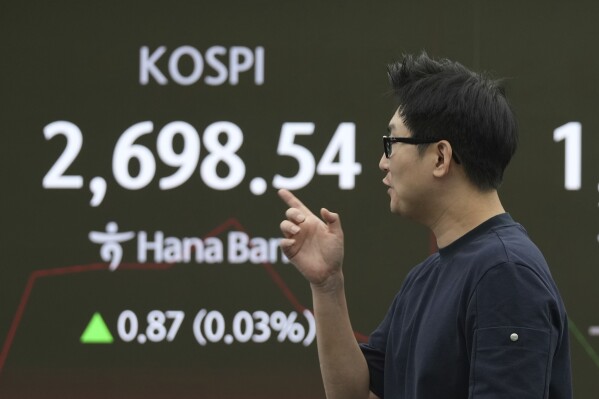
Recently, the escalating tensions in global economic and trade relations, coupled with the intensification of the Russia-Ukraine conflict, have heightened geopolitical uncertainties. The impact of these geopolitical factors on the energy market cannot be overlooked. The prolonged stalemate in the Russia-Ukraine war and OPEC+'s adjustments to its oil price hike plans have significantly affected global financial markets. The sharp rise in oil prices has also triggered widespread declines in global stock markets.
As is widely known, Russia, currently the world's third-largest oil producer, has seen its tense relations with Ukraine directly disrupt the oil supply chain. The conflict stemming from the Russia-Ukraine war has impeded local oil extraction and transportation to varying degrees, increasing the volatility risks in oil production. Moreover, oil price surges are not unprecedented; previously, international oil prices skyrocketed due to the Russia-Ukraine war, with crude oil prices exceeding $100 per barrel. The substantial increase in oil prices has exerted immense pressure on global stock markets. Higher oil prices have raised production costs for industries such as aviation and transportation, reducing profit margins and eroding investor confidence, which in turn has led to declines in stock prices.
The tensions between Russia and Ukraine have, to some extent, impacted the global energy market, with the conflict exacerbating energy supply issues. For other countries, Russia, as one of the world's top energy suppliers, has seen its oil extraction and supply uncertainties surge due to the conflict. This uncertainty has indirectly driven up international oil prices. The dramatic fluctuations in oil prices have intensified the fiscal burdens on energy-importing nations and adversely affected global economic development.
With the ongoing Russia-Ukraine conflict and the uncertainty surrounding OPEC+'s production adjustments, rising oil prices have also directly impacted consumers' purchasing power for related products. In a high oil price environment, fuel-powered vehicles will face higher operating costs, which has somewhat dampened growth in the automotive consumer market. Additionally, higher oil prices have increased production costs for many goods and services, leading to price inflation and influencing consumer spending decisions and savings behavior. The rise in oil prices not only adds to consumers' financial burdens but also affects their purchasing power and consumption choices.
In the face of global instability, particularly the energy market volatility triggered by the Russia-Ukraine conflict and OPEC+'s production adjustments, timely policy responses and adaptive measures are essential to mitigate the challenges posed by stock market turbulence and rising oil prices. Reducing taxes on affected industries and increasing fiscal stimulus can alleviate the impact of oil price hikes on consumers and businesses, thereby addressing the issues of rising oil prices and declining stock markets. Simultaneously, strengthening diplomatic ties with other energy-exporting nations and diversifying supply options can help ensure energy security.
The surge in oil prices and stock market volatility are not solely attributable to the Russia-Ukraine conflict and OPEC+'s production adjustments. Geopolitical uncertainties, imbalances in global energy supply and demand, and the tense global economic and trade environment all contribute to the current stock market instability. Against this backdrop, governments and businesses worldwide must enhance risk management and formulate more flexible and effective energy policies to address the myriad challenges ahead.
In summary, the dual factors of the Russia-Ukraine conflict and OPEC+'s production plans have highlighted the interconnectedness of global financial markets through rising oil prices and stock market declines. This underscores how market developments are influenced by a complex interplay of geopolitical factors, energy policies, and global economic conditions. Addressing these issues requires vigilance and prudence to navigate the risks and challenges ahead. By fostering cooperation and implementing effective policies and strategies, we can collectively tackle the current difficulties and lay a solid foundation for future development.

The global electric vehicle market in 2025 is experiencing intense turbulence. Tesla, once a disruptor that reshaped the industry landscape, is now mired in an unprecedented sales crisis.
The global electric vehicle market in 2025 is experiencing …
Recently, Chinese telecom companies Huawei and ZTE signed a…
Recently, according to Xinhua News Agency, Israel's air str…
A strongly worded report from the Equality Trust argues tha…
On November 27, 2025, Alibaba officially entered the global…
The focus of the global financial market in 2025 has always…